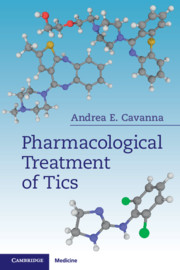Book contents
Introduction: The Long and Winding Road to Tourette Syndrome
Published online by Cambridge University Press: 16 August 2020
Summary
The ‘maladie des tics’ is currently associated with the name of the French physician who published its first scientific description, Georges Gilles de la Tourette. What is currently known as Tourette syndrome should be more appropriately referred to as ‘Gilles de la Tourette syndrome’ – after the full surname of the French doctor who published the first comprehensive description of this complex tic disorder. The 1885 article by Gilles de la Tourette featured a case series of nine patients sharing a triad of symptoms encompassing motor/vocal tics (involuntary movements and vocalizations), echolalia (involuntary repetition of others’ words) and coprolalia (involuntary swearing). The current definition of Tourette syndrome as a complex chronic tic disorder focuses on the presence of multiple motor tics plus at least one vocal tic, whereas complex vocal tics such as echolalia and coprolalia are not included in the diagnostic criteria. However, this is only the most recent part of a long history that dates back to ancient times.
- Type
- Chapter
- Information
- Pharmacological Treatment of Tics , pp. 1 - 8Publisher: Cambridge University PressPrint publication year: 2020



